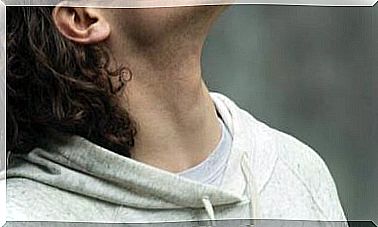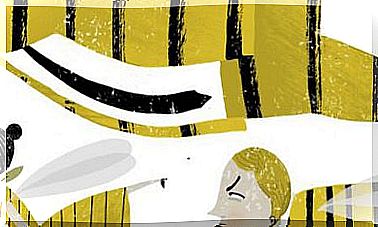The Pitfalls Of Consumption
We should be willing to pay for material things only what they are worth and not dedicate a lifetime to them.

As we all know, our education, even the most careful and loving, is plagued with errors, distortions and limitations, if not blatant lies in which our educators and leaders believed squarely.
One of them – surely not the one with the most serious consequences, but the most widespread in the West – is the one that suggests that happiness ultimately depends on the satisfaction of each of our desires.
The worst – and it is not a casual association – is that our desires and ambitions are often also conditioned, initially, by that same education and, later, by the social demands of each time and each environment.
How they convince us to enter the spiral of consumption
From all the media, newspapers, magazines, radio and television, the world’s publicists try to convince us that we “need” to drive such a car, live in that place, drink that liquor or have a certain physical appearance if we want to be in tune with the times. they run or be accepted with pleasure by the majority of people (and the more aggressive and forceful the advertising campaign, the more conviction is generated that this will be the case).
As if it were part of a macabre mass manipulation scheme or a micro brainwash, the truth propagated with intensity and persistence may end up becoming true. the psychological-social mechanism that we can detect behind this phenomenon is that of “creative prediction”, also known as the process of self-fulfilling prophecy.
To give just one example: if a campaign, or many, bombards the population for years, showing them images of very athletic men and almost anorexic women, laughing and enjoying parties, while they drink and dance, and then leave the meeting in the most luxurious of cars, driving towards a dreamlike landscape …, the idea could be generated – and it is generated – that without a body like that it will be impossible for us to achieve such things, which, just by seeing them, caress our most hedonistic fantasies.
We know that the material is not enough to be happy. but even so, we fall into the temptation to buy things that we will surely never appreciate.
Once that image is finished, a voiceover or some large letters let us know “the important thing” : “have the body that you always wanted to have using our modeling creams, taking these beautiful and innocuous pills or subscribing to our training program imported from Tanzania … ”. And although it is not said, it is insinuated: “… and if it does not, the world will treat it as if it did not exist. “
If they could convince me, even for a minute, that this threat has some truth, how could I not go out and buy the blessed cream, the magical medicine or the happy exercise program?
The great thinker Erich Fromm told us more than fifty years ago that Western society, sooner or later, would end up realizing that obtaining all the things that can be paid for with money are not enough to guarantee us a good life.
We know that it is so. And yet we fall into the addictive temptation to find pleasure in just buying a thousand things that we had never thought of and that we may never appreciate – except, of course, to let others know that we have them, that we used them or that we were able to pay for them.
A kind of sick behavior that I have once called “cubic stupidity” and that manifests itself in a repetitive attitude: spending the money you don’t have to buy what you don’t need to impress some people you don’t even care about. Like I said, the stupidity of the stupidity of the stupidity.
What is hidden behind our need to consume?
The consumer society, as it is called, lives, grows and expands thanks to these “weak” sides of our behavior.
We function by inventing, creating, or fantasizing a desire – if not making someone else’s own – and then working and striving to satisfy it, encouraged by the memory of the pleasure that once satisfied a genuine desire gave us.
Put like that, it sounds as ridiculous as banging our heads against the wall so that we can feel the pain relief when we take the painkiller. Around us there are many who live like this, and many more who take painkillers because they always believe that something hurts; and there are some, even, who take it so that it never hurts or in case they hit themselves.
Nothing that money can buy can fill the inner void. Only the sincere encounter with the other will satisfy you
The decision to supply the true need –which is to fill or understand the internal emptiness– buying has this origin. A behavior that, in many ways, works like an addiction –with all that this implies–, although in less ostensible cases it is socially endorsed with a knowing smile and even applauded, especially by those who silently envy the fate of those who “all tastes” can be given – except for feeling full, I say.
Let no one believe that I am against indulging. Let no one think that I propose the asceticism of the hermits as the only way to conquer the essence. I am sure that the money you have earned with your work is in your hands precisely so that you can use it as you please, for your enjoyment and that of yours.
What I am saying, in any case, is that we should be able to enjoy all these things and also enjoy without them.
Is it worth selling our time for material things?
Thousands of fathers and mothers in the Western world work more than fourteen hours a day to ensure, they say, that their children lack nothing and, without realizing it, deprive them of what they most need, the presence of one of their parents .
Silvia and Sergio are loving and excellent parents, who flood their two daughters with presence, love and care. One night, the girls are left in the care of their grandparents, who also adore and pamper them. But for some reason, Danae, the oldest of the girls, 5 years old, is restless. upon his mother’s return, he rebukes her:
– You said it would take a little while… and it took 846 hours!
“It wasn’t 846 hours, my love,” her mother corrects her. But they seemed like a lot to you, right?
-Yes. Lots of… –said the girl.
“I’m sorry,” her mother says while hugging her, “but I’m here and that’s the important thing, right?”
For a child, a couple of hours of absence can be as long as 846 hours and, although this was not the case, it points us in the right direction. A child knows what many of us later seem to forget: nothing that money can buy can replace or compensate for the need for a hug. The only thing that satisfies that desire is, of course, a hug.
How to leave shopping addiction behind
The society we have built cannot guarantee that there will always be someone who will give us a sincere hug every time we want it; It cannot guarantee that we will be able to ward off our fear of loneliness with our own company ; it cannot guarantee that we have the wisdom not to confuse our own desires with those of others and thus be able to differentiate our genuine consciousness from the introjected. In fact, it cannot even teach us to clearly discriminate a material lack from an existential void. ..
The consumer society cannot do any of that, but it is capable, of course, of showing us the path of prosperity and abundance ; is able to help us get a good job, a profitable profession and combine, at the service of compulsive shoppers, millions of shopping centers with hundreds of beautifully colored credit cards that can even make us believe, for a few moments, that we are not even paying what we buy.
I remember now that phrase of the incredible teacher of the East Baldwin the Wise. He would say, laughing out loud: “As attractive as the idea may seem to you, you should not taste the poison without being sure that you have taken the antidote first.”
And the antidote to the toxic behavior of the addiction to escape through consumption is the awareness of the true need hidden behind that behavior and, from there, the recovery of control of our responses.
At first, it could help us to overcome the temptation to buy and buy the realization that we could live just as happily without any of those things that we urgently need to have.
It could help us to try, by decision, to replace those shopping hours with an encounter with someone who –why not? – is capable of hugging us, without metaphors. Popular wisdom is right when it teaches us that money is an excellent slave, but a cruel and despotic master.









